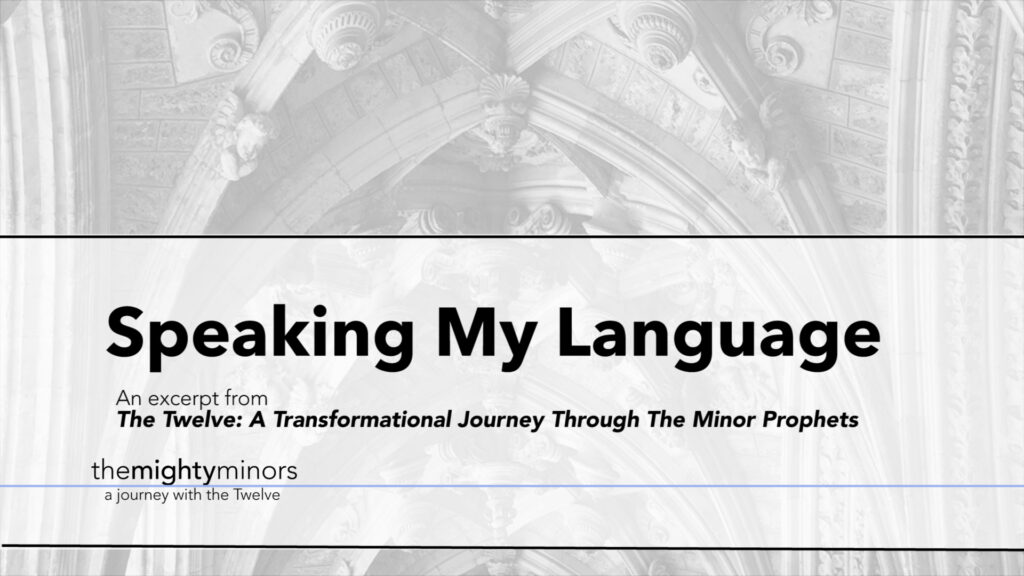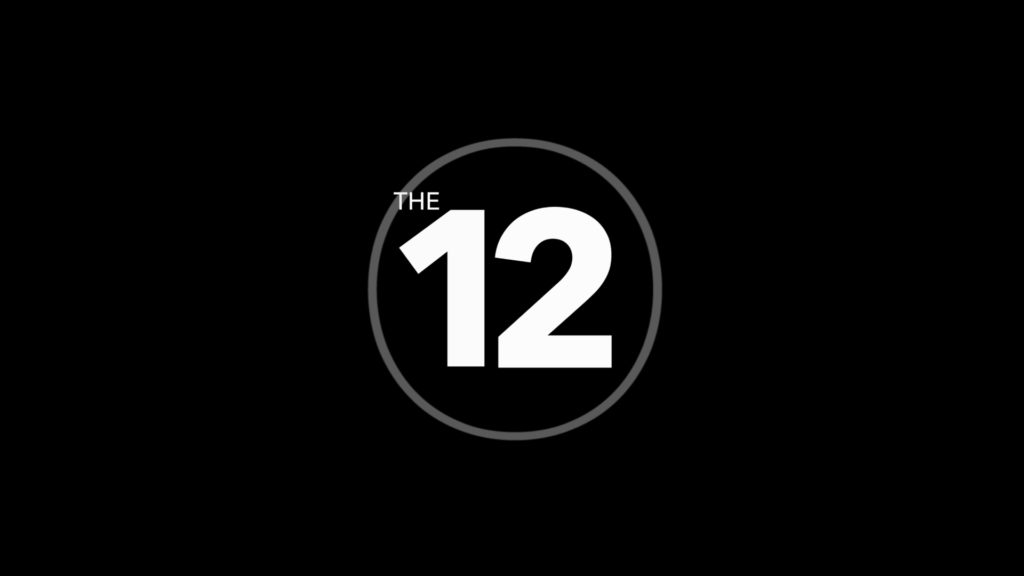
From Chapter 8 of
The Twelve: A Transformational Journey Through The Minor Prophets

Habakkuk: When God Goes Silent
Speaking My Language
Doubts and distractions can be very loud at times for us. The temptation may be to crank up our own impatience and anger in order to shout back at them at equal volume. While still being a prophet who was very much connected with his fellow man and with God, Habakkuk seemed to have found a way to ask hard questions to God without shouting in impatience and anger. The answer seems to lie in the purpose of his questions. My struggle is often that my focus doesn’t go further than my own experience. I want things the way that I want them. Habakkuk’s conversation with God had a different tone for one big reason: he was concerned about the things that God was concerned about. His focus was on God alone. Yes, Habakkuk complained about all the violence going on around him while God seemingly did nothing about it, but the origin and purpose of his questions are key. Why was Habakkuk taking this heartfelt inquiry to God? Just to hurry up and fix it so he could get back to his regular life? Or was there an even deeper motivation?
If you remember back in Micah we talked about the power of lament. Some psalms in the Bible are of lamentation and share deep expressions of sorrow in the hardest of times, but they are not questioning God’s character or spoken from a loss of faith. Habakkuk opened up his book with personal questions for God that were phrased like psalms of lament. He asked “How long shall I cry for help and you will not hear?” (Habakkuk 1:2) He also asked, “Why do you make me see iniquity, and why do you idly look at wrong?” (Habakkuk 1:3) “How long?” and “Why?” are the terms of lament in Scripture (see Psalm 13). Lament is not despair or the shedding of faith: it is honesty. “God is the friend of the honest doubter who dares to talk to God rather than about him.” (Barker and Bailey, Habakkuk)
That statement deserves to be read again. Barker and Bailey continue in their commentary here:
The prophet’s “doubts and questionings are not those of a fault-finding negative critic or skeptic but the honest searching of a holy prophet of God.” Habakkuk stood in a long line of godly people who dared to question God. Moses, Jeremiah, Job and Habakkuk wanted to know about the work of God. [Habakkuk] raised his protests actually because he thought so much of God and hungered and thirsted to see God’s righteousness vindicated as well as his own. (Barker and Bailey, Habakkuk)
Bull’s eye. Habakkuk was moved to question God about the violence and iniquity done around him everyday, but his reason for questioning focused on how those difficulties reflected on God rather than just on himself. He was concerned about God’s name, God’s law, and God’s righteousness being trampled on. That is a foundational point in understanding truthful lament and in understanding Habakkuk. He asked something like, “Oh God, for your own name’s sake, what will you do?” This truth forces me to ask myself some questions. When things get sideways in culture, in the lives of those I love, or in my own spiritual walk, is the honor of God’s name what I’m most concerned about? Do I pour out my heartfelt questions to God merely out of my own hurt or do I pray for Him to act so that His name may be glorified in how He brings about the solution? When I see His righteousness being thrust aside, forgotten, and challenged around me, do I raise my voice as the lamenting psalmist? Typically, I want things to be fixed now because I am uncomfortable, uncertain, or concerned. I want the pain to stop so that I can quit worrying about it. I want my life to be happy again or for someone else to be out of a difficult situation. I want things to work out like I want them to. My attitude often collapses upon itself, and my prayer is often a frazzled self-centered one. Habakkuk asked God hard questions in faith concerning the collapse of the culture around him, and God answered that genuine prophet without softening His answer. God knew the heart of the question from Habakkuk was a godly one and that He could trust Habakkuk with the answer. It was not an easy answer.
Habakkuk was concerned about what God was concerned about: the wicked surrounded the righteous, justice went forth perverted, and God’s law was paralyzed. Destruction, violence, strife, and contention were the hallmarks of personal relationship in Jerusalem at that time. God’s design and name were utterly cast aside. In his heartfelt plea, Habakkuk cared for God and how all of this reflected on Him. How beautiful is that? I must admit that at times I have not cared for God very well in my petitions to Him as Habakkuk did. Habakkuk spoke God’s language when he inquired in the spirit of the psalms of lament. It wasn’t selfish venting. It was his drawing near to God because he held God’s name high and God’s word close. Habakkuk knew something about God that he could rely on without fail—God would always act according to His revealed character. His questions did not bring separation from God in his heart; they brought him nearer to God.
Psalm 10 in the Bible begins with, “Why, O Lord, do you stand far away? Why do you hide yourself in times of trouble?” and ends with, “O Lord you hear the desire of the afflicted; you will strengthen their heart; you will incline your ear to do justice to the oppressed” (Psalm 10: 1,17-18). The psalmist ended with confidence in God’s good action on his behalf. If we know God’s character and lean upon it, our questions are different. Our concerns have a larger perspective. Our prayers, even concerning personal pain, are godly ones. Deep faith can still ask hard questions. Caring about how things in our lives and culture affect God’s heart and design is a sure signal of a maturing faith. Our prayers rise above the immediate and into the eternal for the sake of God’s name more than for our own. O. Palmer Robertson wraps it up well here:
This intensive probing of the purposes of God by the prophet should not be analyzed as a manifestation of weak faith. Both the nature and purpose of God elicit from the prophet expressions of confidence. Not a weak faith but a perplexed faith torments Habakkuk. (Robertson, Nahum, Habakkuk, Zephaniah)
Something amazing blooms at the center of Habakkuk’s back-and-forth with God. The shining heart of this special book is one that the Apostle Paul shouted from every rooftop. But are we ready for it? Do we truly want to know it, or do we just want everything to be OK as we see it? What if things get worse before they get better? Does that mean God has forgotten us or that we have gone too far for Him to redeem and restore? Maybe what’s going on inside our hearts by God’s hand should take precedence over what’s going on around us at the moment. Maybe we need to close our eyes to the scary stuff in front of us for a bit and seek out God’s larger perspective. The answer is deeper then because the question is deeper.
